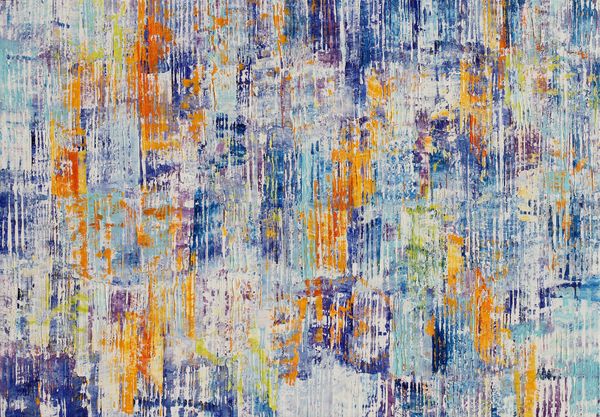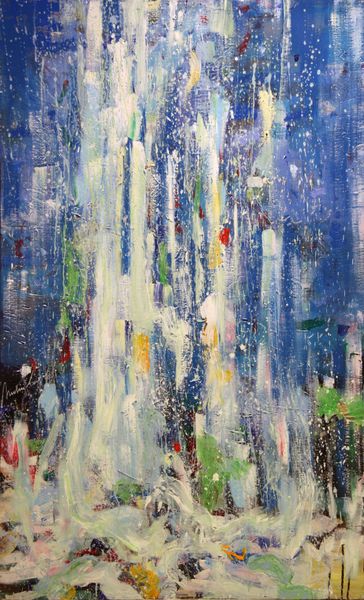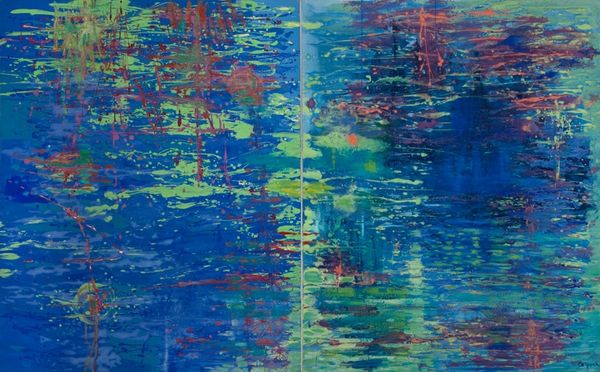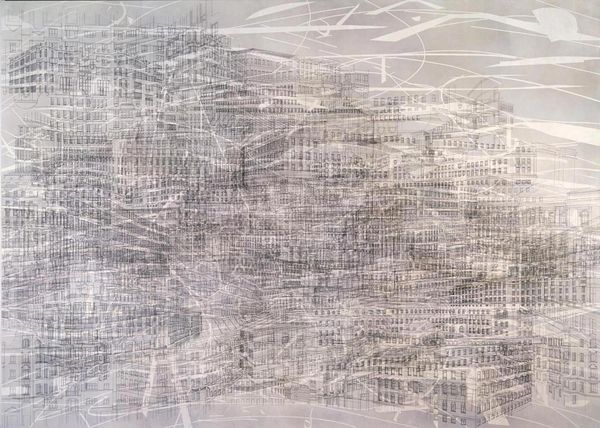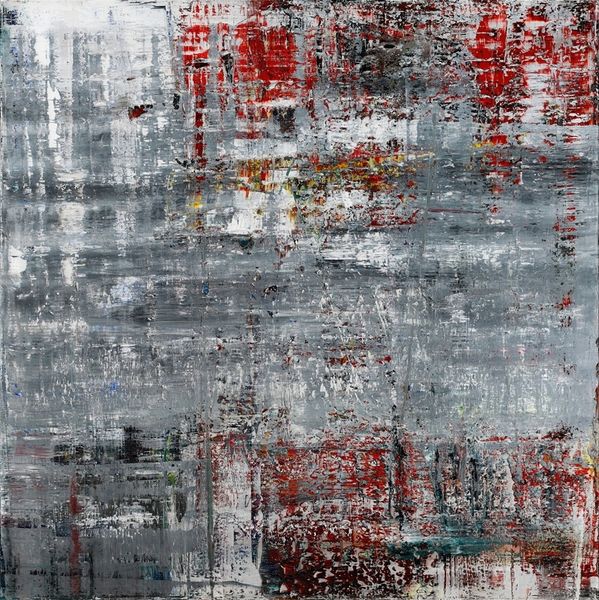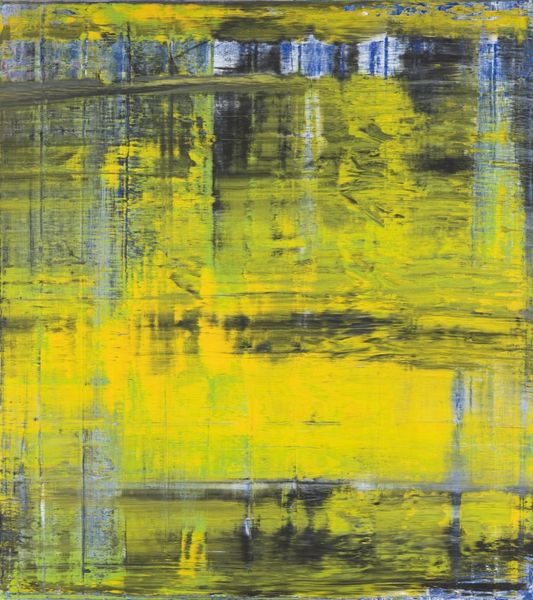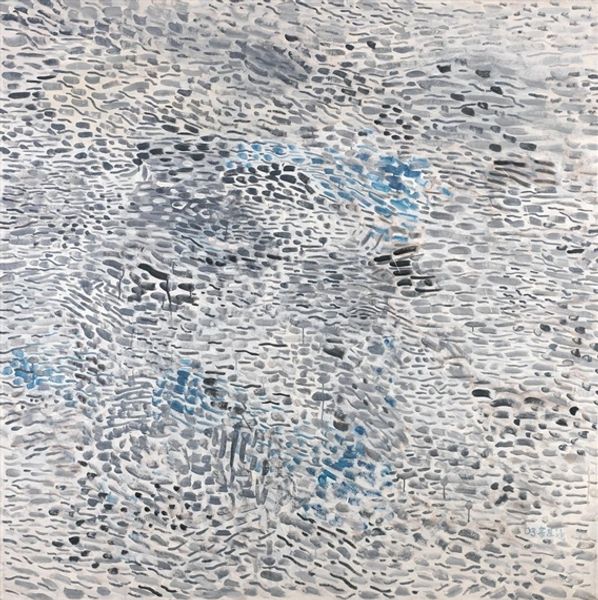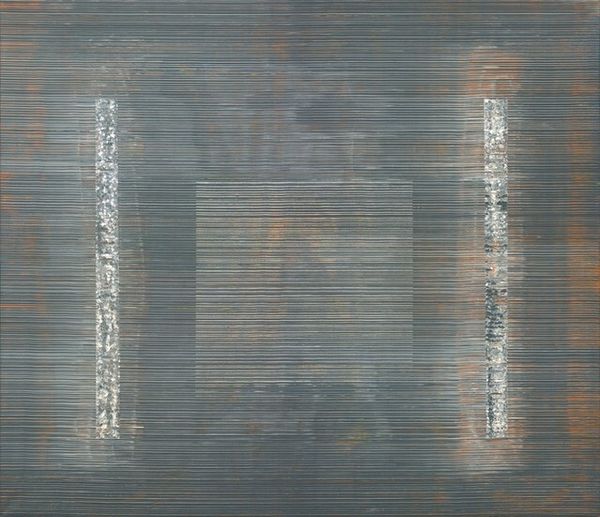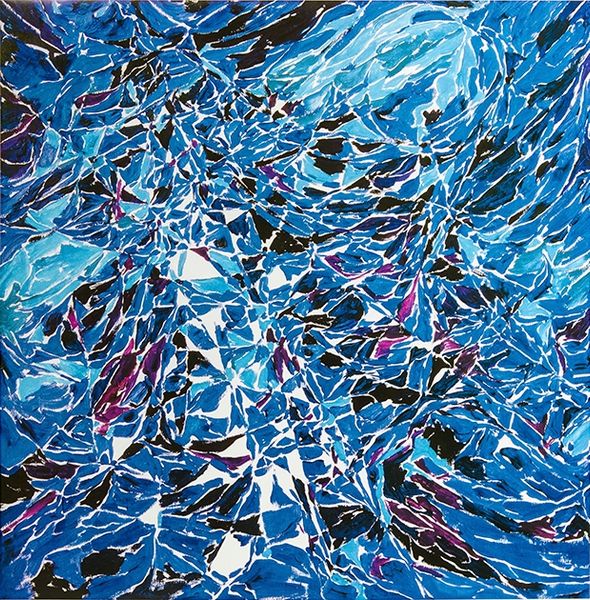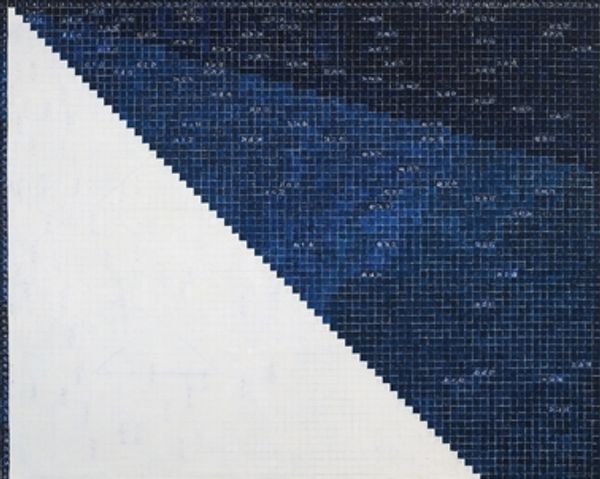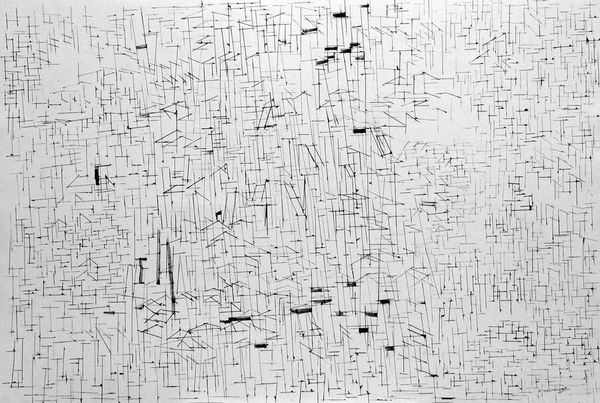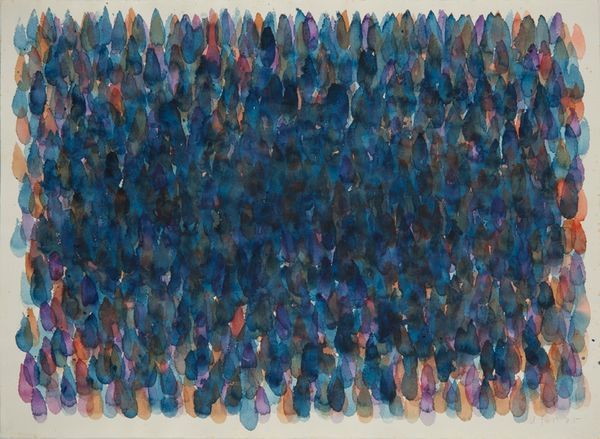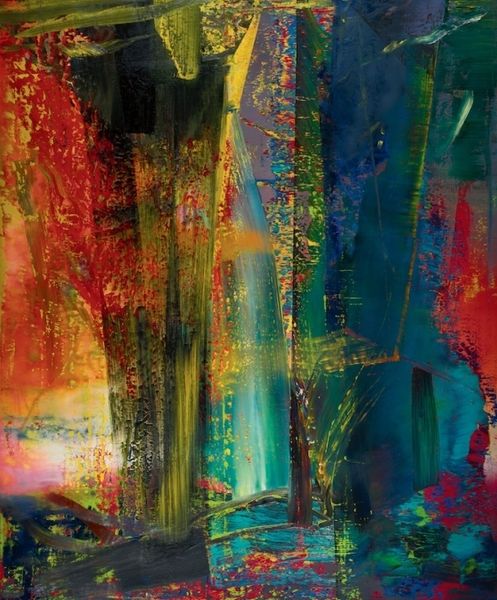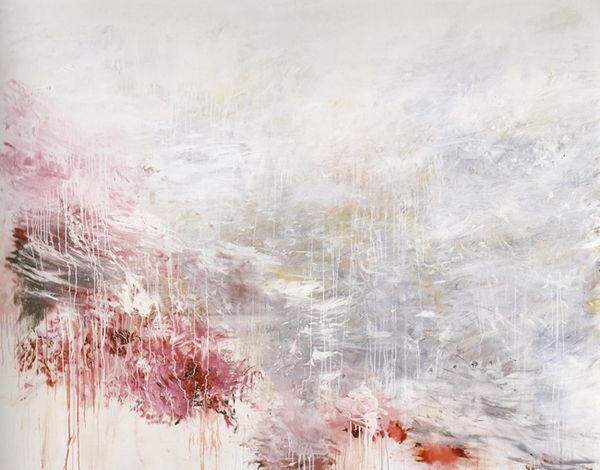
Dimensions: 130 x 195 cm
Copyright: Manuel Cargaleiro,Fair Use
Editor: We’re looking at Manuel Cargaleiro's "Ribatejo – Flores E Azulejos," from 1981, made with acrylic paint. It’s an intricate pattern of blues and whites that almost looks like… falling tiles. It reminds me a bit of rain. What stands out to you about this piece? Curator: This painting foregrounds the materiality of both folk and ‘high’ art production. The title references both flowers and azulejos – the painted, tin-glazed ceramic tilework so integral to Portuguese visual culture. The means by which these traditions intersect here—through Cargaleiro’s specific application of acrylic—become very interesting to consider. Do you notice a tension between the geometric forms and the more organic application of the paint? Editor: Yes, absolutely! There’s something almost chaotic in the way the geometric tiles seem to dissolve and reform, especially in the lower register. It gives the whole piece a sense of motion, fighting against its rigid structure. How does understanding the materiality inform our understanding of the social context? Curator: Consider that azulejos were historically both decorative and functional, serving as architectural embellishments across social strata. Cargaleiro takes this traditionally functional and mass-produced form and elevates it to the realm of ‘fine art’ through painterly abstraction. He prompts us to consider the labor involved in both processes, inviting viewers to rethink those categorical boundaries. Where do you see evidence of that blurring in this composition? Editor: That makes sense. The repetitive, almost industrial feel of the tile-like structures juxtaposed with the expressiveness of the brushstrokes... it's like he’s both celebrating and deconstructing those traditions at the same time. Curator: Precisely. Through his choice of material and technique, Cargaleiro calls attention to the interconnectedness of art, craft, and social life. Hopefully you agree that this lens underscores the political implications inherent to Cargaleiro's process? Editor: It really does. Thinking about the work and labor that went into this from that angle opens it up completely!
Comments
No comments
Be the first to comment and join the conversation on the ultimate creative platform.
